Sometimes 'Not Losing' Is Your Best Hope As an Artist (Or: How I Survived Creating My First TV Series)
'DRACULA' (2013) was one of the most challenging and painful experiences of my life, but unconventional tactics often helped me outmaneuver superior adversaries
When two opposing forces that differ greatly in military power meet on any battlefield, the weaker side typically must resort to the use of unconventional weapons and tactics to win…or simply avoid losing. This is known as asymmetric warfare. It’s a mindset I had to embrace during the development, production, and promotion of “DRACULA” (2013), a TV series I created and this month am looking back at as part of a tenth-anniversary celebration of the complete and utter shitshow it ultimately became. Hopefully, you can learn something from my experiences.
Almost as soon as I sold “DRACULA” to NBC in 2011, I discovered I wanted nothing to do with one of the production companies involved. Its owner, Mr. Smiley as I call him, was by this point the most toxic and horrible human being I’d encountered in Hollywood (which hasn’t changed in the decade since). But when I expressed my terror at the situation I’d found myself in to my reps, they made it clear I couldn’t walk away from this career opportunity. They were, obviously, right. It was too good of an opportunity to abandon even if I had to sit in my car for several minutes before every meeting with Mr. Smiley, breathing, trying to find a way not to throw up in my mouth again as he spoke (something which actually happened during one of my meetings with him and his executive Mr. Candy, or rather during my rushed transit from Mr. Smiley’s office to the bathroom after one of his derisory assaults on my competence).
To survive the experience, I had to develop new skills to confront the way Mr. Smiley and other elements of the production would attempt to either gaslight or outright bulldoze me into submission or, when that didn’t work, try to cut me out of the process altogether in the hopes I would just surrender. Another word for these skills is strategies. I’m going to lay out for you three occasions I, a fledgling TV creator, was forced to tackle what was, for lack of better words, a superior enemy force with unconventional “weapons and tactics”.
EXAMPLE 1: THAT TIME I QUIT MY OWN TV SERIES…TWICE
In THE HORROR OF “DRACULA”: THE UNBELIEVABLE TRUE STORY OF THE 2013 TV SERIES, I described the agonizing development process of “DRACULA” and how the producers demanded page-one rewrite after page-one rewrite of the pilot outline between October and December 2011 (one of them the week before my wedding). In hindsight, emails show that Mr. English — Mr. Smiley’s partner in this project — was not the source of most of this hell. I delivered work, it would be well-received, and within no time Mr. Smiley and his executive would backtrack and tell me to start over. After nine or so weeks of this, I spent two-and-a-half hours in a final meeting with Mr. Smiley and Mr. Candy, the whole of which they explained to me how I was the problem rather than their comically contradictory notes. Afterward, I had my reps call my NBC exec. My message to them to pass along was:
“Fuck this, I quit. They can have their money back.”
By the start of 2012, NBC informed Mr. Smiley and Mr. Candy that my four outlines were all fine and it would’ve moved forward on the first one three months earlier. It was a victory for me, but not one I actually wanted. I was sincere when I asked to quit. The thought of working with Mr. Smiley for another day nauseated me.
The problem wasn’t as resolved as NBC hoped, though. By the second week of February, Mr. Smiley had taken the third producer draft of my pilot and personally rewritten it. This, you should know, is almost unheard of in the business. This time, I wasn’t going to sit back and take it anymore. I’d discovered NBC’s impatience with his behavior and sent my reps back to my exec with a message no rational first-time creator sends once, much less a second time:
“Fuck this, I quit. They can have their money back.”
Unlike the first time, though, I was making a strategic gamble that NBC would side with me, the creator, and put Mr. Smiley in his place for good. Maybe the titan in the mix would fight my battle for me if my use to it was threatened. By this point, I felt I had nothing left to lose anyway.
It worked, too.
Well, to a degree.
Mr. English, as you’ll read in “THE HORROR OF DRACULA”, came to my rescue and personally salvaged the development process his partner had sought to torpedo with his overconfidence at every turn. The series received a greenlight to series as a result. Mr. Smiley, however, didn’t learn from what had happened and continued his shenanigans.
EXAMPLE 2: THAT TIME I HAD TO AMBUSH THE AUDITIONS FOR MY OWN TV SERIES
In December 2012, my wife and I decided to spend Christmas in the United Kingdom: a week in London, a few days in Oxford, a few days in the Cotswolds. It was, without a doubt, the greatest vacation of my life and led to my family moving to London in 2017. But I’m getting ahead of myself, because that December was also when auditions for “DRACULA” were held. Unfortunately, as my reps broke it to me, I wasn’t invited. This is highly irregular. TV creators always attend the auditions for their own shows, but I was competing with Mr. Smiley who had done his best to convince himself and others he was the visionary behind the whole thing.
By this point, my team had fought so many battles on my behalf, I think a kind of fatigue had set in. This was just one I wasn’t going to win.
Or was it?
In my capacity as creator and co-executive producer, I’d been CC’d on all pre-production emails. This was standard practice, from NBC/Sky down. While I had never met him, or in fact even been allowed to speak to the man, the attached director of “DRACULA’s” first episode was often CC’d on these. His name: Steve Shill. Emmy-nominated director. You can look him up.
The auditions were being held in London. Steve Shill was in London. I was in London.
The thing is: Shill didn’t know my geographical location because that information had never been passed along to him. No doubt, he had simply been informed I was unable to attend.
So, I emailed him on December 11th:
We haven't been properly introduced yet, but I wanted to tell you how excited I am to be working with you. It's great to know my baby will be in the hands of such a great director!
I'll be in London this week, starting Wednesday. If you're around to grab a coffee, I'd love to put a face to the name and chat "Dracula".
When he responded he was available from “Friday on”, excited to get coffee, I then replied:
Wonderful coincidence then. Friday is one of my only really open days...though I do believe you're in the casting room, correct? Will also be around Saturday brunch.
Within minutes, Mr. Smiley’s office sent an invitation for me to attend the auditions.
Shill had obviously expressed his confusion that I wasn’t going to be there.
Instead of confronting Mr. Smiley head-on, I again weaponized someone else, someone more powerful than me, to fight a battle on my behalf.
As a consequence, I think I saved “DRACULA” from becoming an even bigger catastrophe than it was. The instincts of the producers had nothing to do with the characters that I’d written. Let me give you an example in the form of Jonathan Harker.
The actors the producers were most responding to for this part were smaller men. Not necessarily short or compact, but thin, lanky, unintimidating. Conventional British leading men and, in my opinion, very predictable for the part of Harker as he was portrayed in earlier adaptations. This was deeply problematic for multiple reasons.
The first, Jonathan Rhys Meyers, who was set to play Dracula, is a shorter actor. He instead conveys size in his performance, filling up whole rooms with his presence. More, he was going to play Dracula, a vampire who possessed superhuman strength and abilities. He would dominate any scene he was in regardless of his actual physical dimensions, both because of JRM’s gifts as an actor and the powers the audience would know the character he was playing possessed.
The second, Harker was meant to evolve into the ultimate villain of “DRACULA”. Meaning, he would become Dracula’s arch-nemesis. I knew I needed them to be able to stand opposite each other, and that Harker would have to hold his own in that confrontation. Sure, Harker would always lose if a real fight broke out, but audiences needed to believe the fight would last for more than three seconds. Also, that Harker had the physical strength to think he might stand a chance.
It was this second point about Harker that came as the biggest shock to everyone in the room, who had never asked me about his character arc from hero to villain. As a consequence, Oliver Jackson-Cohen — whom I knew was perfect for the part — was cast. In the years since, others have recognized how brilliant he is, too. I’m pretty sure he can do anything.
EXAMPLE 3: THAT TIME I HAD TO CRASH THE MARKETING MEETING FOR MY OWN TV SERIES
This story takes place in January of 2013, well into the writers’ room and production of “DRACULA”. It came to my attention that NBC was staging a marketing meeting to discuss how to promote the show. Mr. Smiley quite appropriately invited the series’ head writer to this meeting, but not its creator - me.
This seemed ludicrous to me for many reasons, amongst them the fact that I didn’t think Mr. Smiley or the head writer knew what they were doing. And listen, I know this is a ridiculous thing to say. I was a nobody (relative kid from Detroit and they had many credits and much experience to their name. But everything they said and did demonstrated otherwise to me on a regular basis. Moreover, they always insisted they knew what they were doing while telling me how I did not. The head writer was less adept at this, but Mr. Smiley was a pro. He went all in every time. In this case, he had told me I wasn’t coming because I would embarrass myself. In fact, he was “saving me” from this embarrassment. A favor, if I thought about it. After all, I didn’t understand network marketing as he did.
So, I got one of my reps to slip word to NBC that their invitation to “DRACULA’s creator” had ended with an offer from its producer to attend via phone. Mind you, this is a meeting that was ultimately attended by literally dozens of people. And Mr. Smiley didn’t intend for the person who dreamed the project up to be present except by phone.
Within hours, I had my invitation and gate pass to NBCUniversal.
When I arrived, I met Mr. Smiley in the lobby. Along with me was fellow writing-producer Harley Peyton, a series co-EP I recently shared a “DRACULA”-centric conversation with here on 5AM StoryTalk. I took the unusual tact of refusing to acknowledge Mr. Smiley at all. Mr. Smiley would address me, but I pretended I didn’t hear him. Childish, perhaps, but it drove him mad. Harley snickered in the elevator to the meeting as Mr. Smiley said things like, “You’re just not going to talk to me. That’s mature, Cole.”
But it unsettled Mr. Smiley. In the meeting, I sensed he was off-kilter, too. I was able to interject myself, speaking over him as he often did me. When San Diego Comic-Con came up in the conversation, I floated a crazy idea of recreating Dracula’s crypt. Visitors could pass through and be scared shitless by the experience. People scribbled the idea down, but I didn’t hear anything about it…until June.
Which is when I received the following email:
The idea that Marketing has come up with, is for attendees to enter a crypt, and inside they would encounter Vlad’s sarcophagus from our show.
Hm.
Anyway, Mr. Smiley had insisted I would embarrass myself. Had I not crashed that meeting, had I not rattled him as I did by simply ignoring him — a tactic I have found works with anyone who demonstrates the same narcissistic qualities as toddlers — who knows what terrible ideas he might’ve suggested instead of the series’ creator?

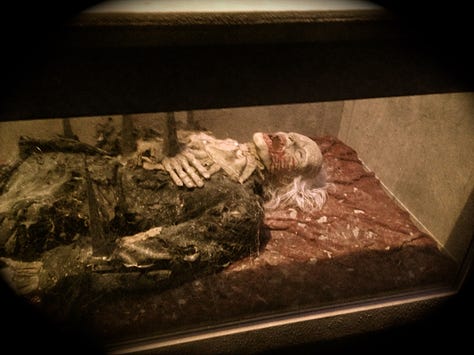
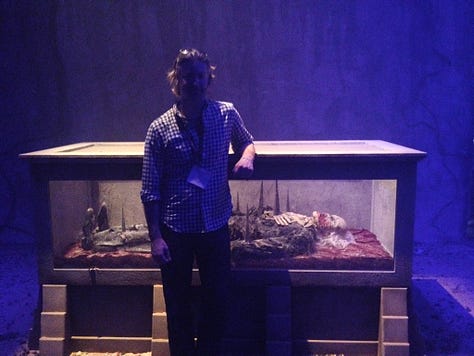
THE TAKEAWAY
At the time of “DRACULA”, I was a neophyte to TV in every way, but I’d worked with my share of terrible human beings in other industries by then. In each of these cases, I’d been relieved when the experiences were over, but in hindsight, I now understand they prepared me for “DRACULA”. Not to win, but as I said upfront, at least not to lose. I survived — despite how much of my creative blood was spilled along the way — which is what my reps wanted for me and what my career ultimately required. It’s something I’d like you to consider when these crises arise in your own arts careers.
If this article added anything to your life but you’re not up for a paid subscription, please consider buying me a “coffee” so I can keep as much of this newsletter free as possible for the dreamers who couldn’t afford it otherwise.
My debut novel PSALMS FOR THE END OF THE WORLD is out now from Headline Books, Hachette Australia, and more. You can order it here wherever you are in the world:




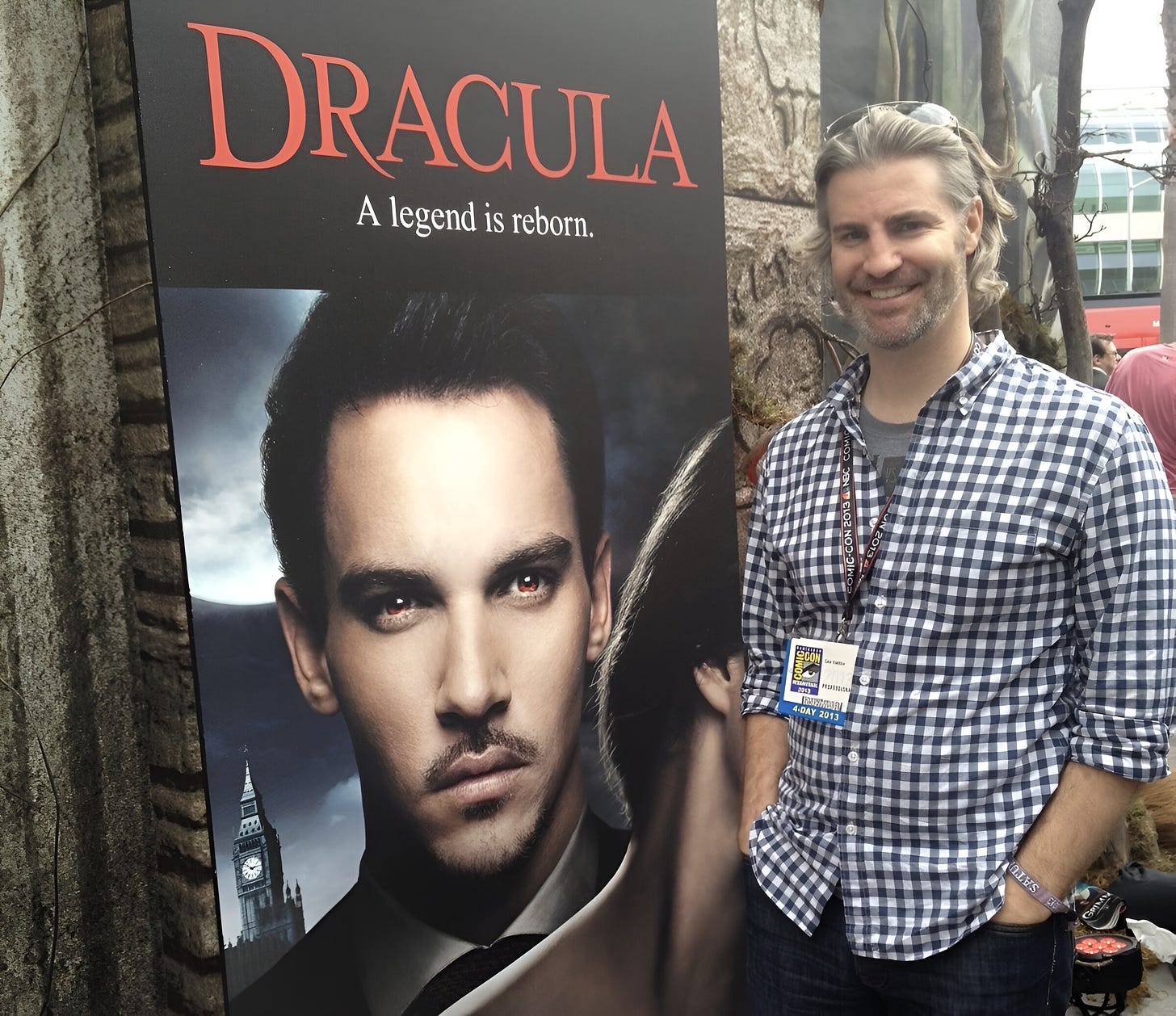
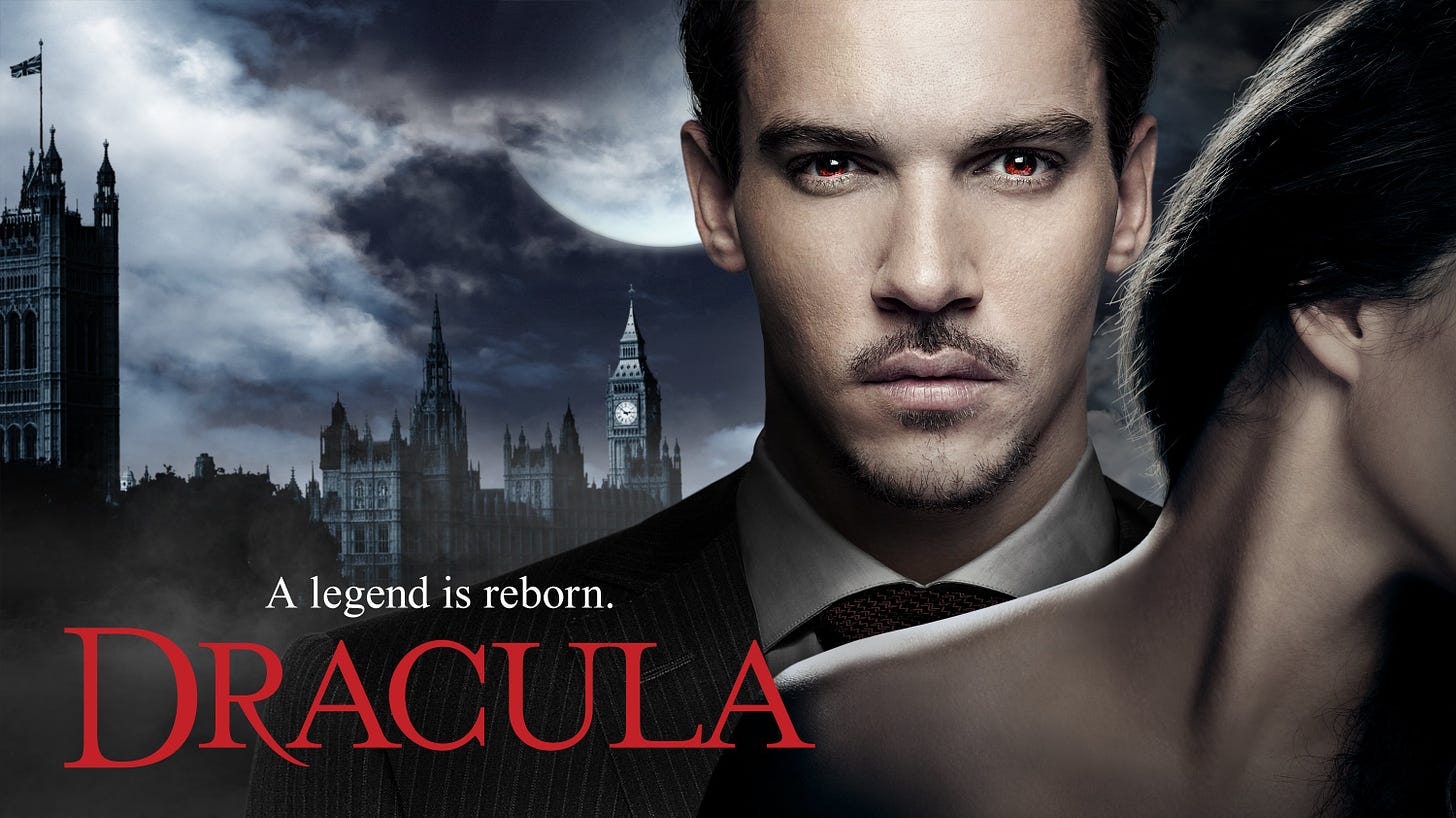

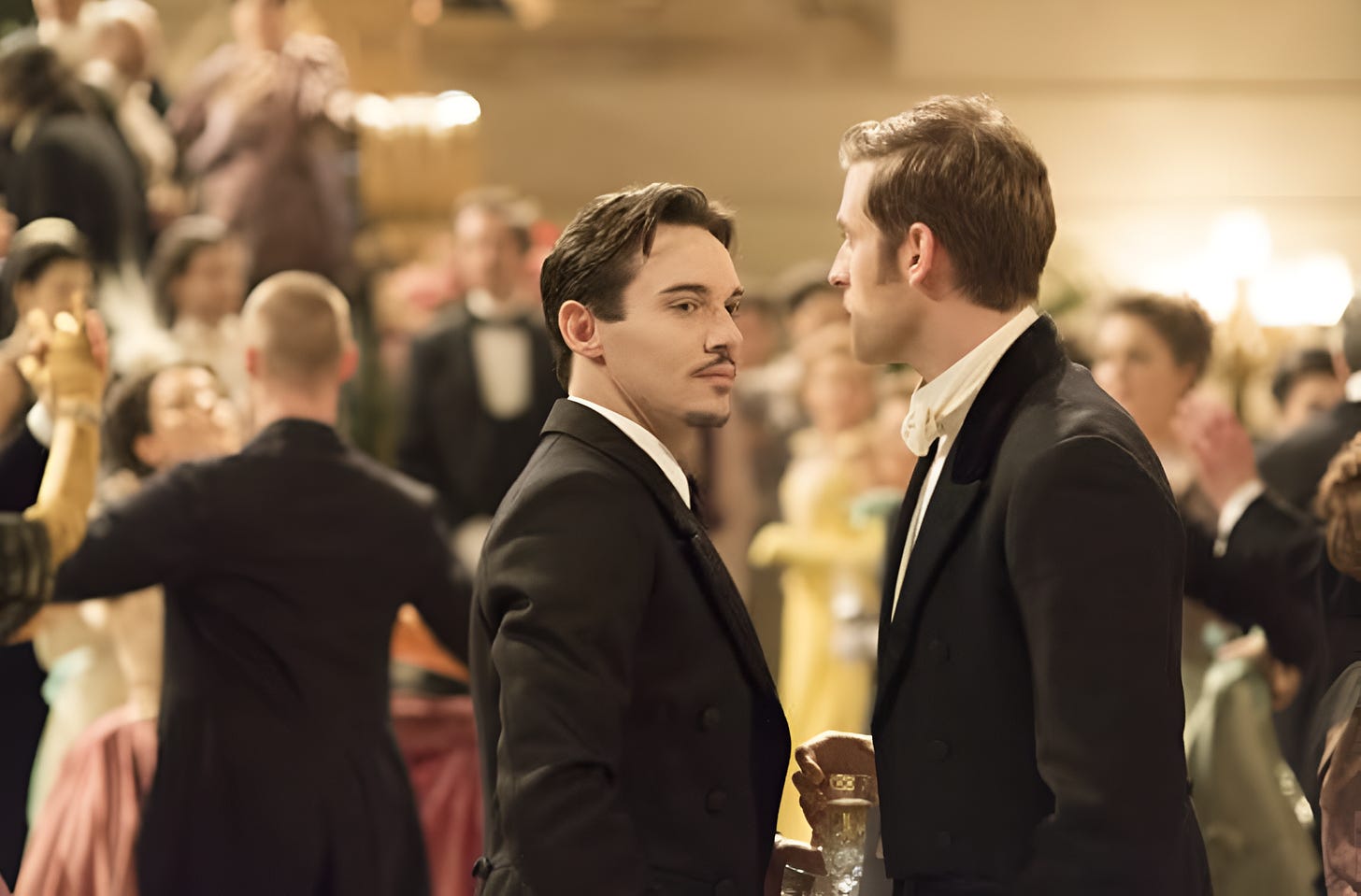
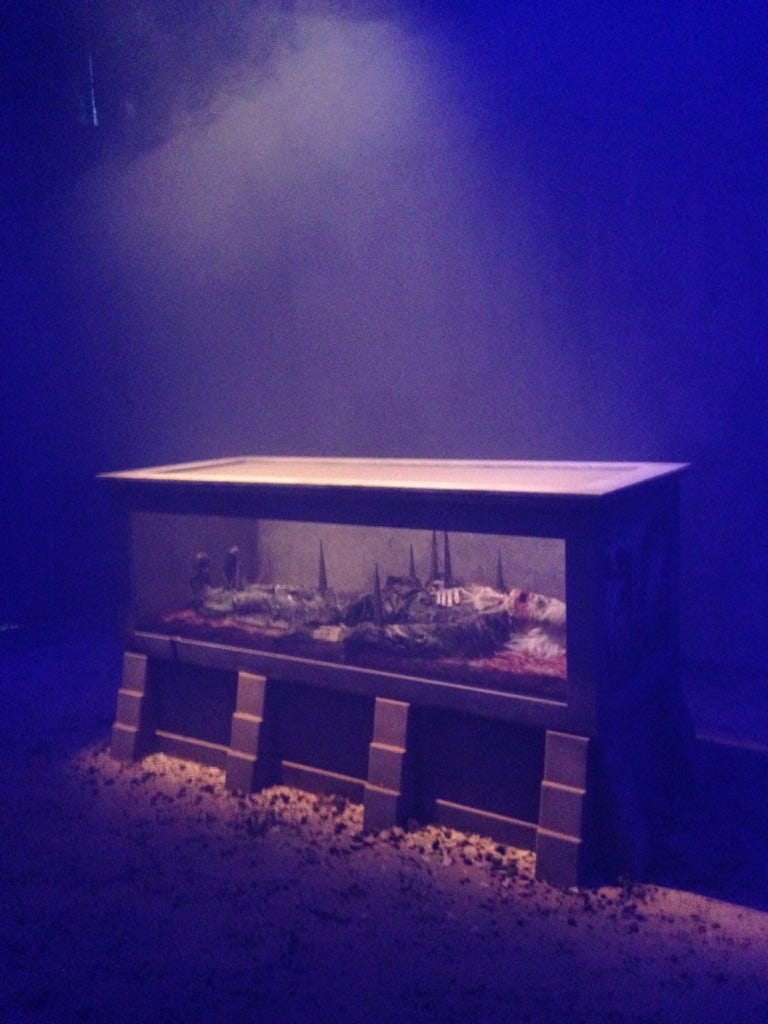

Have you heard from Mr Smiley in the years since?